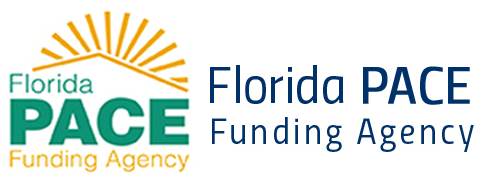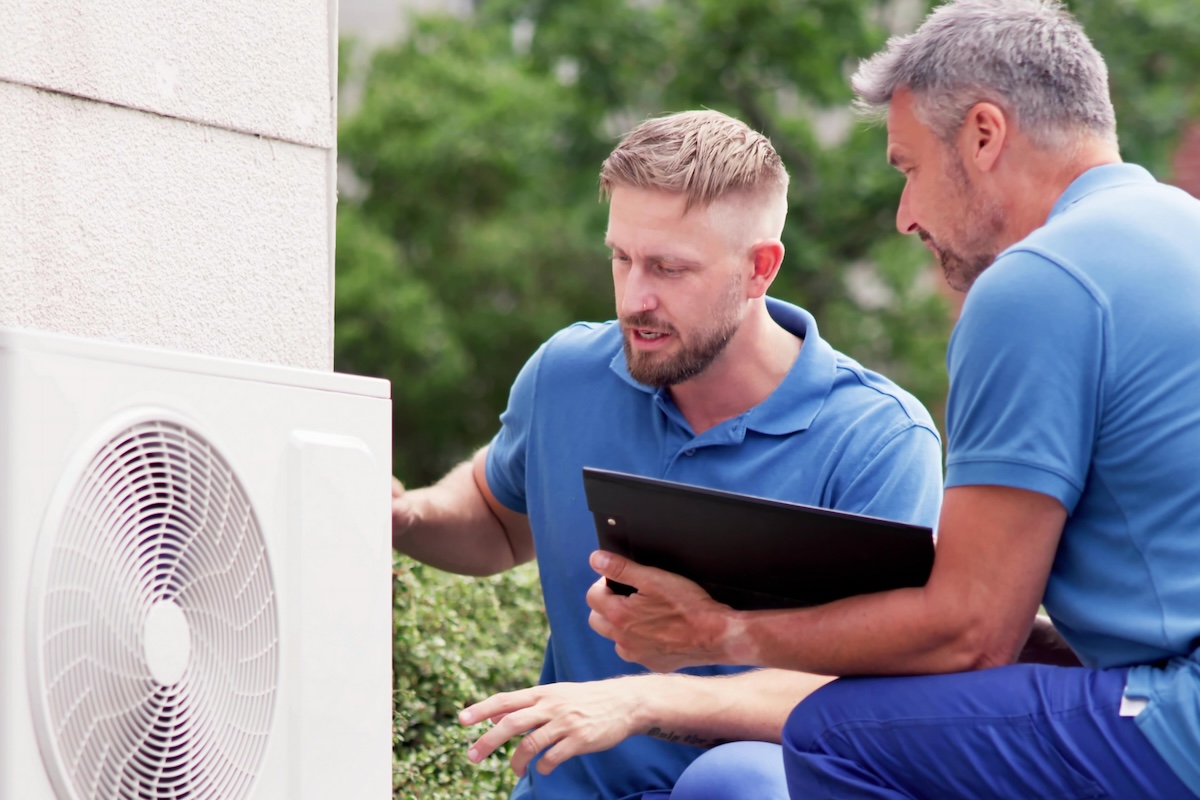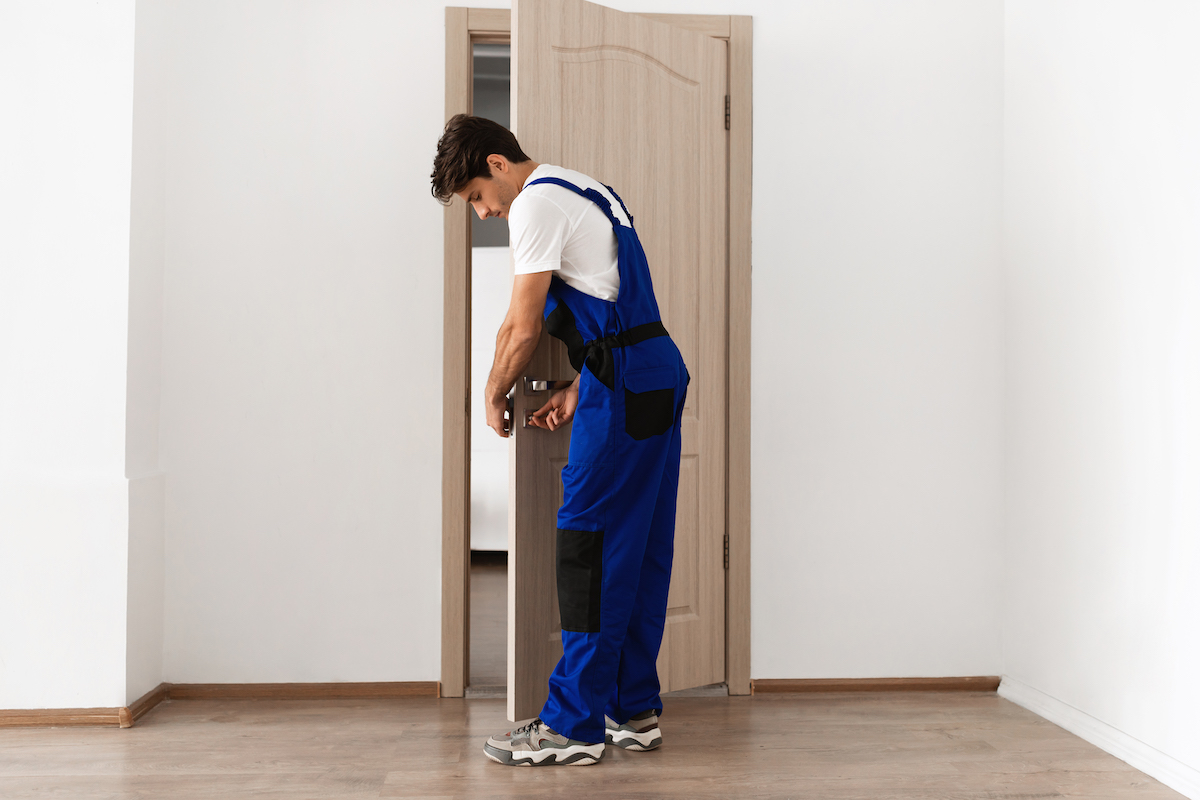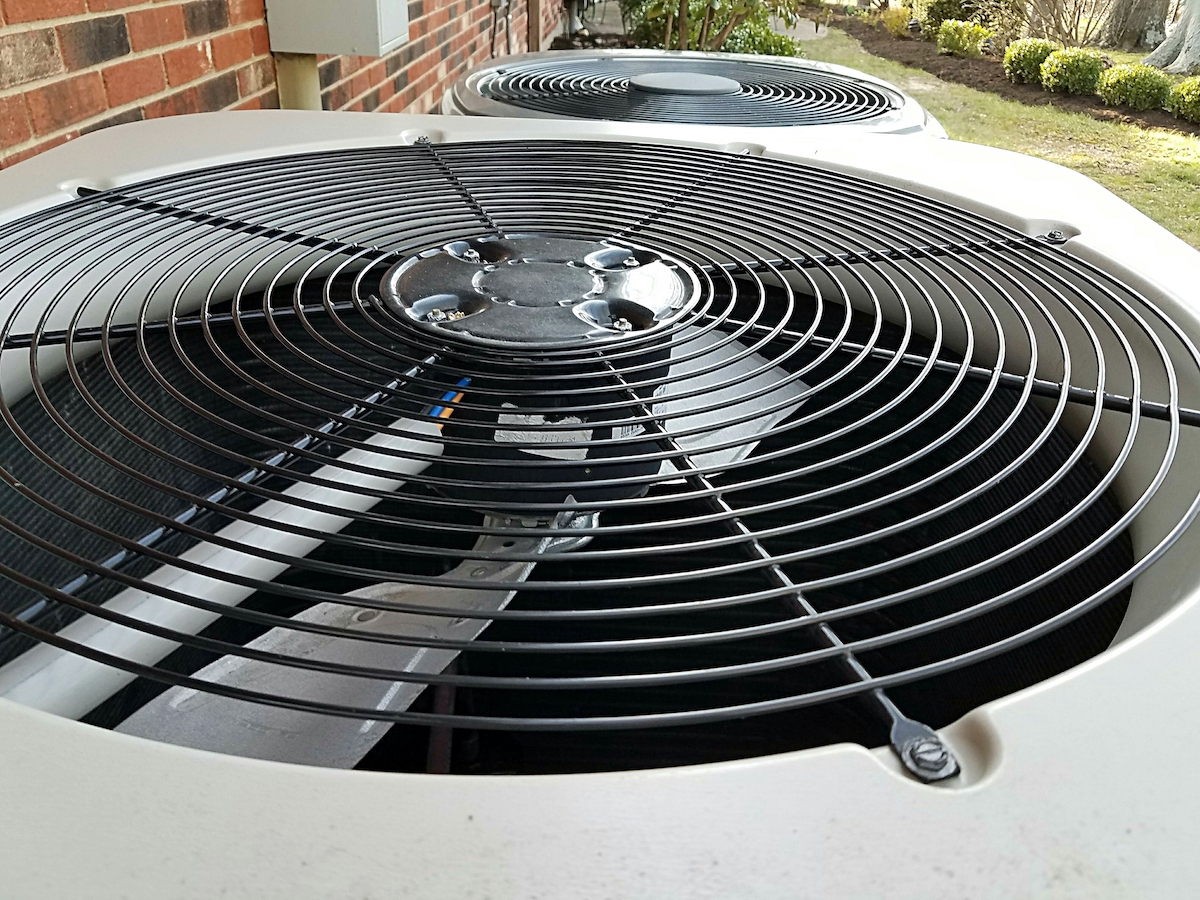
Here’s Why Your Air Conditioner Isn’t Working
Air Conditioner Not Blowing Cold Air? 5 Common Causes
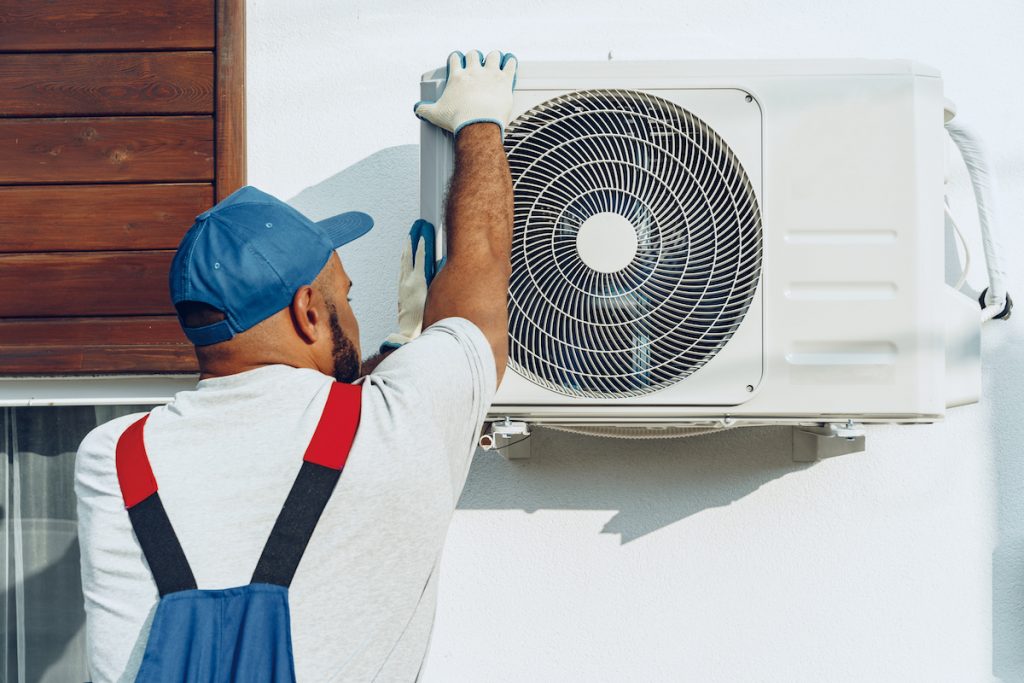
In Florida, an air conditioning unit that works (and works well) is non-negotiable. Temperatures commonly surpass 90 degrees in the summertime and the heat index can easily climb well over 100 degrees (that’s the “feels like” temperature you see in your weather apps). According to the U.S. Department of Energy, the average lifespan of an air conditioner is 15-20 years. But as Floridians, we know our air conditioner units go through much more wear and tear than our northern counterparts do, meaning we have a higher likelihood of our units becoming damaged or broken. Given these conditions, replacing your unit might be a worthwhile consideration, especially if you’re facing frequent repairs. Learn about the average costs to replace an AC unit in Florida to help guide your decision.
If your air conditioner isn’t working properly, there could be a number of culprits at the root of the problem. In this article, we’ll discuss the top five most common reasons why your air conditioner isn’t blowing cold air anymore.
Common Cause #1: The A/C Unit’s Refrigerant Line Is Leaking In One or More Spots
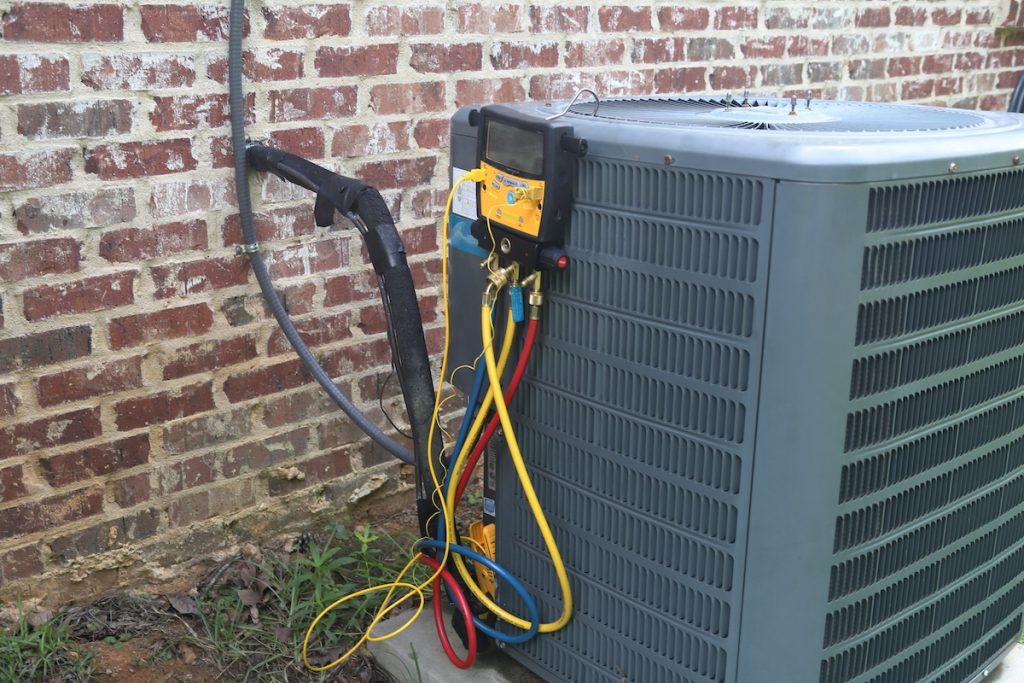
Refrigerant is the fluid your A/C unit uses to remove heat and humidity from the air inside your home. This process can go awry when the system develops a leak in its refrigerant lines, AKA literal holes in the lines. When this happens, it can cause your unit to run out of resources (the refrigerant) to effectively cool the air in your home, causing your air conditioner to blow much warmer air.
Where To Look:
In most cases, you’ll find the refrigerant leak is coming from the evaporator coil (the indoor part of the unit). You’ll want to check both the outdoor condenser unit as well as the indoor unit to accurately detect the source of the leak.
What To Do:
You can perform a test in one of several ways:
A.) Use soapy water to detect the refrigerant leak. If there is a leak the water will bubble up and expose the location of the leak.
B.) Since there is dye in refrigerant, you can use an ultraviolet dye spray to locate the leak. Spray the UV dye into the system and use a blacklight to detect any fluorescent marks that would indicate a leak.
C.) Use an electronic leak detector. An electronic leak detector will almost instantly detect chlorine or fluorine ions if there is a leak. Find additional information on refrigerant leaks here.
Unsure if you need a professional repair? Air conditioner not blowing cold air? Take our quiz to find out.
Common Cause #2: Your A/C Evaporator Coils Have Frozen Over
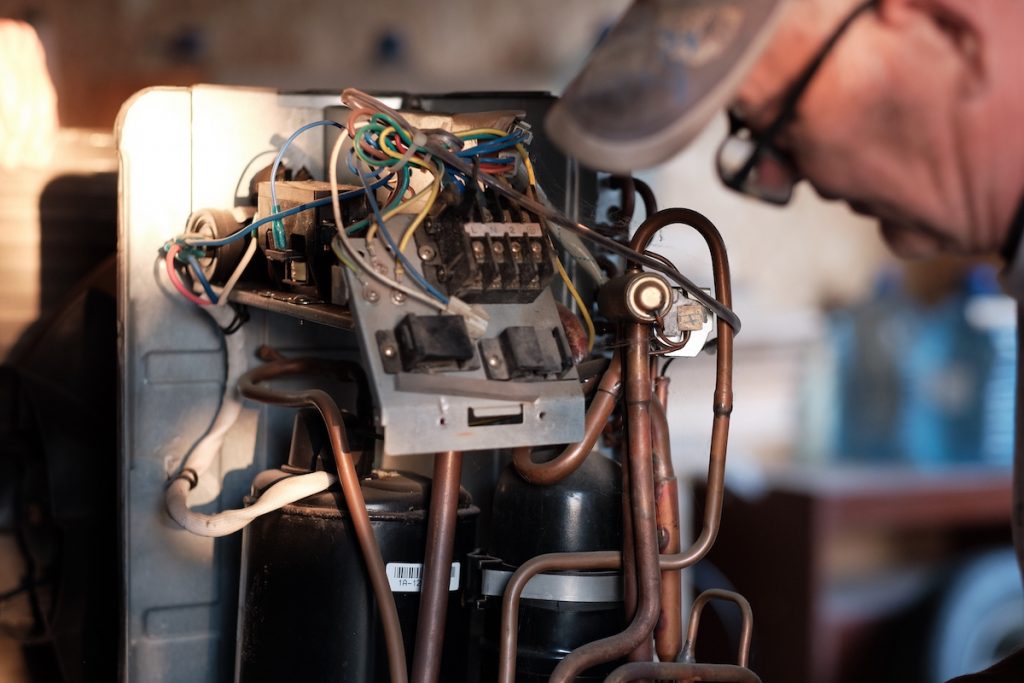
You may be wondering how this can possibly happen in Florida where it is almost always hot and never “frozen”. Put simply, your air conditioner coils need to be surrounded by warm air at all times in order to effectively cool the air. While that may sound contradictory, the warm air that circulates your A/C unit’s coils is what stops the evaporator coil from getting too cold, otherwise referred to as, “freezing over”. When this happens, it results in a thin layer of ice surrounding the outside, which in turn, is the culprit for why your air conditioner isn’t blowing cold air.
Where To Look:
A.) Check for condensation and moisture around the indoor air handler.
B.) Check for ice around the outdoor condenser by the refrigerant line.
C.) Check if your drain pan is full or overflowing.
D.) Check for ice or condensation on the indoor evaporator coil.
What To Do:
A.) Turn off your thermostat so that no air is blowing. This will allow the frozen coil to thaw.
B.) Turn the fan setting on.
C.) Check if your air filter needs to be replaced.
Find additional information on frozen evaporator coils here.Think you may need a professional repair? Find out if you do by taking our quiz today.
Common Cause #3: Dirty Condenser Coils Are Wearing Out Your Unit
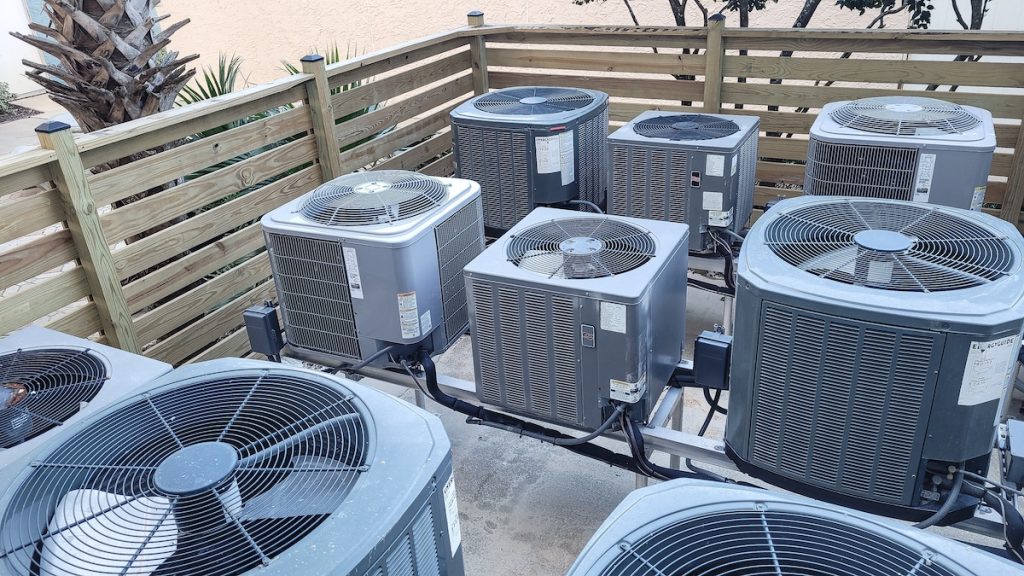
Condenser coils can be found in the part of your air conditioner unit that lives outside your home. These coils are responsible for the exchange of the warm air inside your home for the cool air the unit gives you. In other words, the unit expels the warm air from your home to the outdoors, but this process won’t work if the condenser coils are covered in dirt or other debris. Dirty condenser coils decrease the transfer of heat that needs to happen in order to cool your home and reduce the cooling capacity of your unit. If left untreated, your A/C unit could eventually experience full system failure.
Where To Look:
Take a look at your outdoor unit to see if the condenser coils are dirty or clogged. You may just need to clean them!
What To Do:
These coils should be cleaned every two months. If cleaning the condenser coils doesn’t solve the problem, your unit may require professional attention. Find additional information on dirty AC coils here.
Find out if you need a professional repair by taking our quiz now.
Common Cause #4: Your A/C Ducts Are Leaking
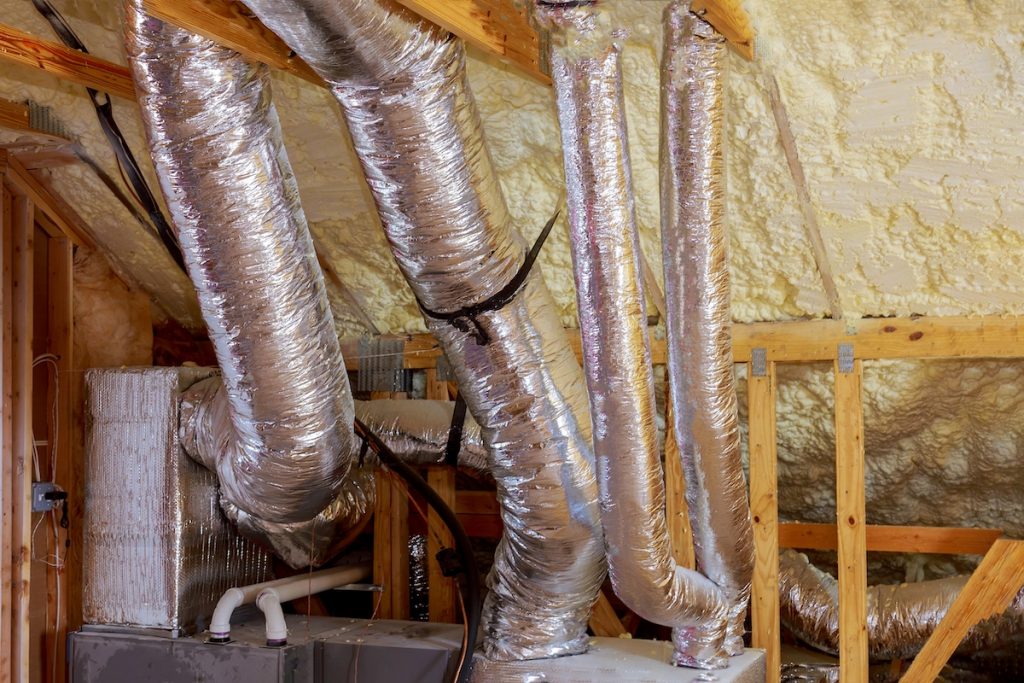
If your air conditioner is on and appears to be running, yet is not blowing cool air into your home, it’s possible that your A/C ducts are leaking. These ducts run through the walls and ceilings of your home and are responsible for carrying and distributing the cool air from the ducts throughout your entire home.
But if your ducts have holes or breakage in them, the cool air you think you are dispersing into your home is actually getting trapped in your walls where it’s not able to do its very important job of cooling the area you so desperately need cooled. This issue is particularly frustrating because it sounds and appears as if your air conditioner is working while your hard-earned cash spent on cooling your home isn’t actually cooling your home.
Where To Look:
A.) Locate your air ducts. These could be in several spots such as ceilings, floors and walls.
B.) Look for obvious gaps or disconnections.
What To Do:
If you find gaps or disconnections, you will likely need to hire a professional to perform a repair. Find additional information on your air conditioner’s ducts here.
Take our quiz to find out if you need a professional to help with your repair.
Common Cause #5: Your A/C Condenser Fan Isn’t Spinning
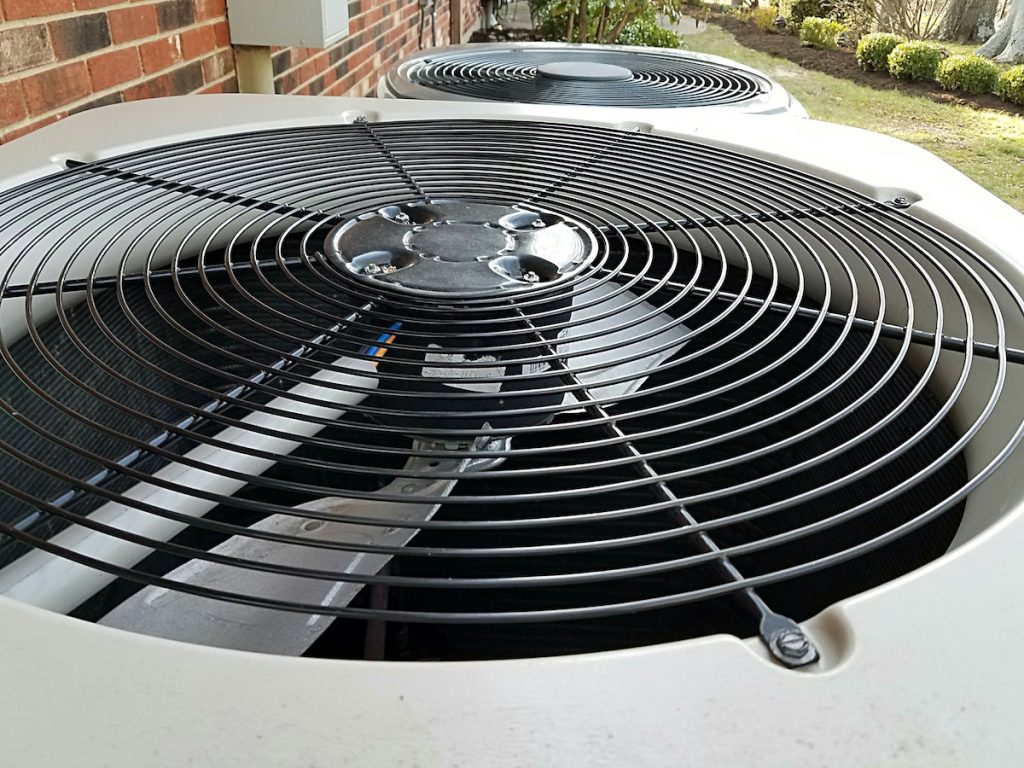
Your air conditioner may be running, but if the fan isn’t spinning then you won’t get the cold air you were expecting. While there are a few reasons an air conditioner’s fan could stop working, the most common issue is usually a dead capacitor. An air conditioner capacitor is a small, cylinder-shaped part inside your unit that powers the fan motor as well as the rest of the air conditioner. There are several capacitors throughout your air conditioner that are responsible for sending different signals, so when one of these signals malfunctions, it will cause your air conditioner to stop blowing cold air.
Where To Look:
Take a look at the outdoor unit. If the fan is not spinning, the problem is likely the A/C capacitor.
What To Do:
A.) Turn the power supply off.
B.) Remove the panel that protects the interior of the A/C unit and you will see the cylinder-shaped capacitor.
C.) Disconnect the wires connected to the dead capacitor and remove. Replace with a new capacitor and re-wire. Find additional information on dead A/C capacitors here.
Not sure if you need a professional repair? Take our quiz to find out.
Need an A/C Repair? Take Our Quiz to Find Out
While there are several possible causes as to why your air conditioner isn’t blowing cold air, these are some of the most common culprits.
If you’re experiencing issues with your A/C unit, take our quiz to find out if you’ll need a professional repair, a complete replacement or just a simple do-it-yourself fix. And if you’re faced with a full replacement or professional repair, Florida PACE may be a good option for you to help finance it.
When you opt for a PACE-certified funding plan, you can confidently finance this type of home improvement repair that sets you up for success now and in the future. No money down, no minimum credit score required and no pressuring you into something you don’t feel 100 percent about.
Take our quiz today to assess your A/C unit and see what next steps might be best for you.
